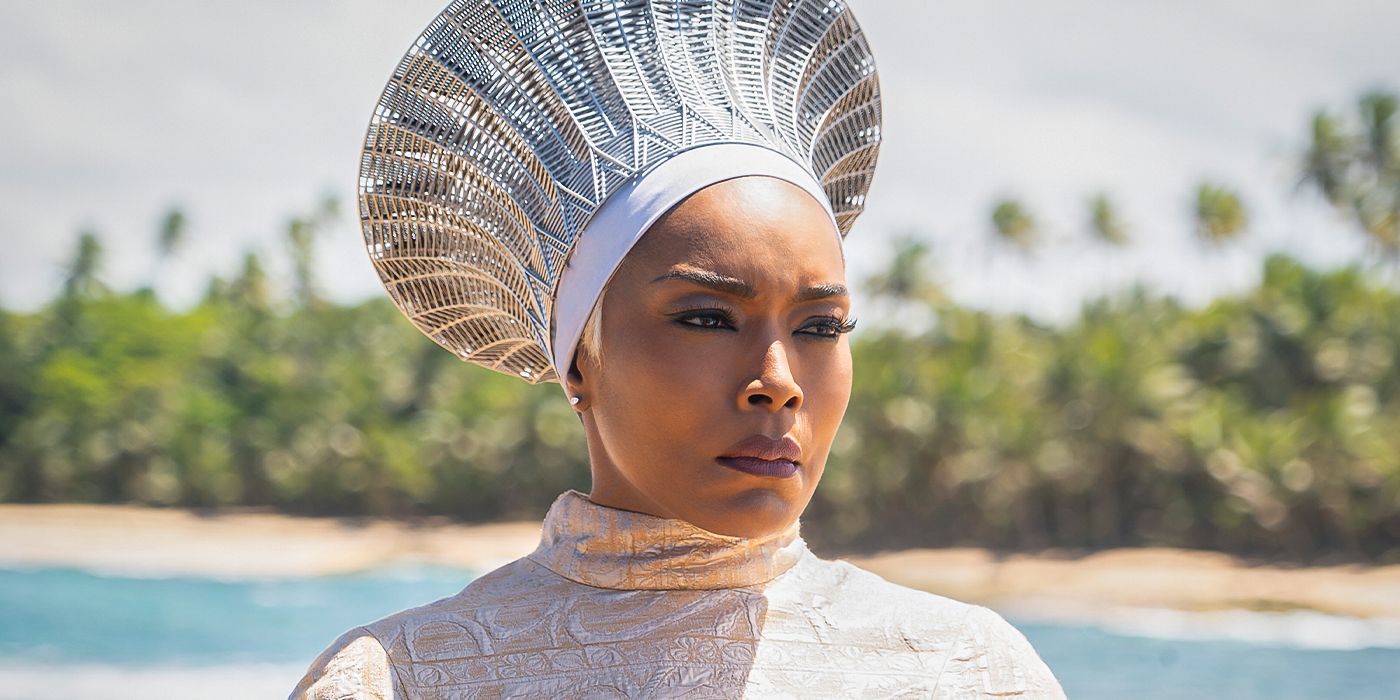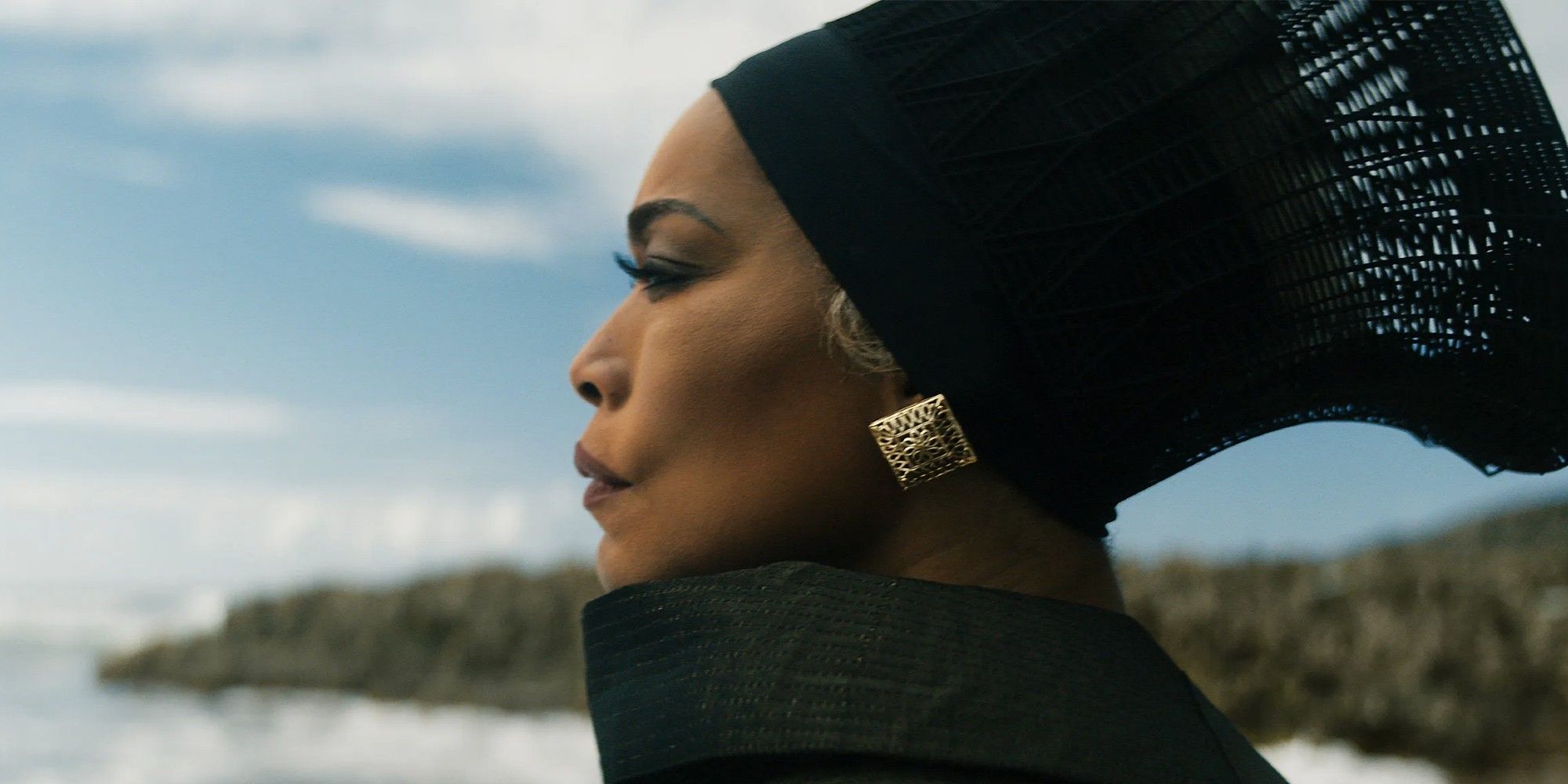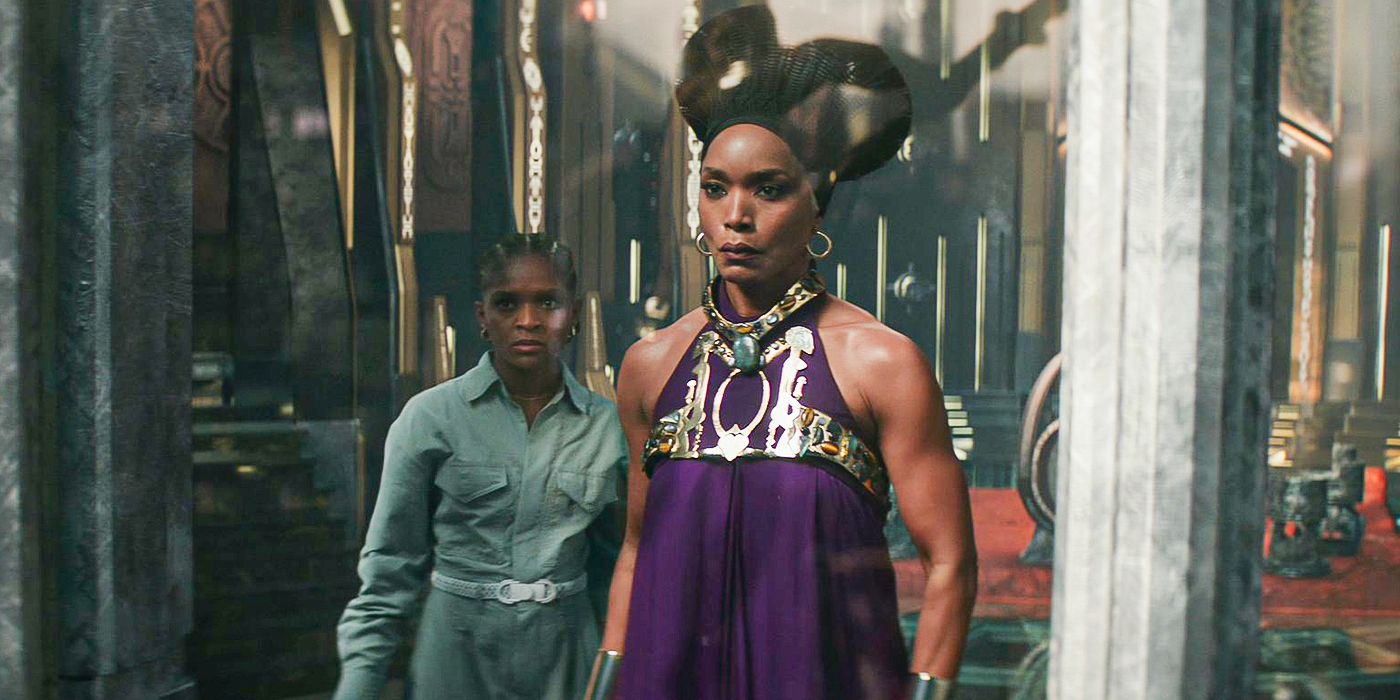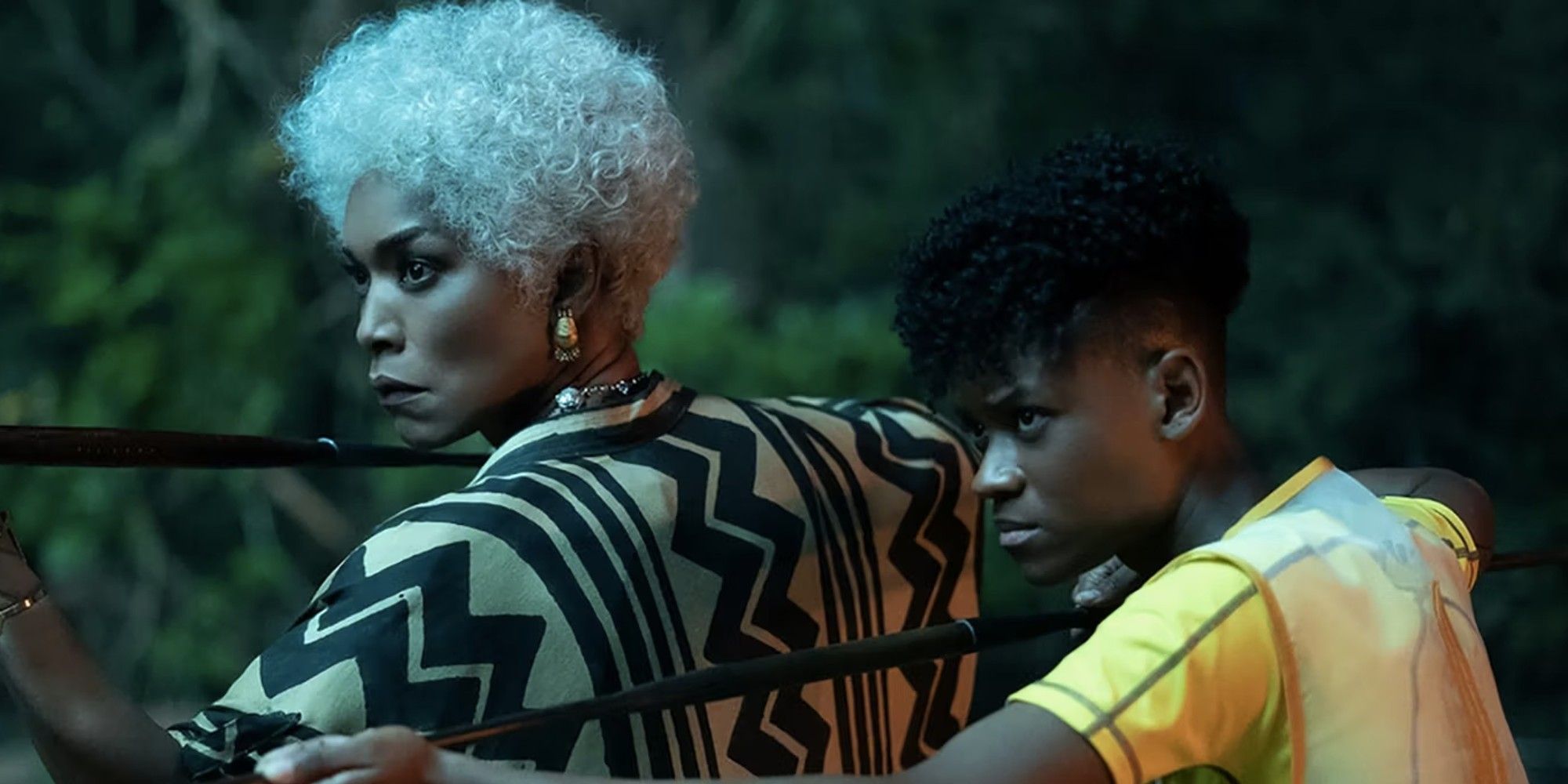The Oscars have slowly, but surely, warmed up to the changing trends of pop culture. Especially when it comes to the superhero movie. The Academy moved to expand the list of Best Picture nominees in the wake of The Dark Knight's success, and at the 2019 ceremony Black Panther was up for multiple nominations — including Best Picture! It ultimately walked away with three awards, and now its sequel Black Panther: Wakanda Forever is also in the Oscars race. Much of the discussion has revolved around Angela Bassett's turn as Queen Ramonda — and for good reason, as it's the entire center around which the film revolves.
Bassett Brings Multiple Layers To Her Performance
Wakanda Forever centers around the passing of Chadwick Boseman's T'Challa and how the world — and more specifically, his family — responds to it. His sister Shuri (Letitia Wright) buries herself in work, blaming herself for not being able to replicate the heart-shaped herb and save her brother. Ramonda has no such luxury, as she now must lead Wakanda in the wake of a world recovering from Thanos' decimation as well as other nations coveting the power of vibranium. Matters aren't helped when Namor (Tenoch Huerta Mejía), the mutant ruler of the underwater nation Talokan, comes to Wakanda seeking their help in finding a scientist that built a vibranium detector.
This would be a lot for anyone to handle, and Bassett knows it. She gets to deliver a multitude of emotions, ranging from steely resolve when confronting the United Nations about their efforts to unearth vibranium to volcanic anger when she learns that Okoye (Danai Gurira) allowed Shuri to be taken to Talokan. It's a layered, gripping performance and Bassett commands the screen every time she's on it.
A Welcome Break From The Norm
Bassett's performance is a stark departure not just from the usual way actors of her caliber are deployed within the Marvel Cinematic Universe, but also how Black women are written in films. Too often, the Black woman has to be the "strong one" — the person who makes the responsible decisions, and isn't allowed to show any emotion. Ryan Coogler, who helmed both Black Panther films, thankfully avoids this trope by giving the women in these films agency in addition to a multitude of emotions.
Though she misses her son, Ramonda eventually ends her mourning period by burning her funeral clothes and urging Shuri to do the same. She even has the chance to be a hero like her son was, protecting Riri Williams (Dominique Thorne) from Namor's wrath but losing her own life in the process. And when a vengeful Shuri intends to kill Namor, her mother's words come back to her: "Show them who we are." She instead spares the aquatic monarch, and Wakanda enters into an alliance of sorts with Talokan.
Ramonda and Shuri Honor Coogler's Original Story
The journey that Ramonda and Shuri go through is very similar to what Coogler had originally planned for Wakanda Forever. His original pitch would have found T'Challa adjusting to life after Avengers: Endgame, and learning that he had a son with the love of his life Nakia (Lupita N'yongo). " It was going to be a father-son story from the perspective of a father, because the first movie had been a father-son story from the perspective of the sons. In the script, T’Challa was a dad who’d had this forced five-year absence from his son’s life [because of the Blip]," Coogler said when laying out the original plan.
Boseman's passing ultimately affected those plans, but Coogler wisely transferred the story of fathers and sons to mothers and daughters, and it shows in Bassett and Wright's performances. Both Shuri and Ramonda know that the other is the only link they have to their family, and their actions throughout the film are that of a family struggling to hold onto the bonds they have left. Coogler would still keep the plot element of T'Challa's son in Wakanda Forever, instead shifting it to the post credits scene.
When all is said and done, Angela Bassett's performance as Ramonda isn't just Oscar worthy. It's an example of why the Black Panther films are a standout in the MCU, and how the franchise is still capable of bringing emotional catharsis more than a decade into its run. Hopefully Marvel Studios will keep this in mind regarding its future releases.
Black Panther: Wakanda Forever is currently playing in theaters and will be available to stream on Disney+ on Feburary 1.




